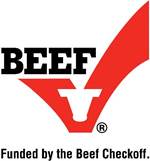A guest post by Agri-Pulse Editor Sara Wyant
 When lawmakers talk about reducing “waste, fraud and abuse” in federal programs, they usually target the food stamp program, more recently called the Supplemental Nutrition Assistance Program (SNAP).
When lawmakers talk about reducing “waste, fraud and abuse” in federal programs, they usually target the food stamp program, more recently called the Supplemental Nutrition Assistance Program (SNAP).
In fact, Sen. Pat Roberts, R-Kan., introduced legislation recently that he said would “restore integrity” to the SNAP program, while saving $36 billion in taxpayer dollars. He’s supported by fellow Republican Senators Mike Johanns, R-Neb., and John Thune, R-SD.
“Times are tough right now for millions of Americans and government spending is out of control.” Roberts said. “This bill is a package of straightforward, commonsense reforms that have garnered bipartisan support in the past to address, waste, fraud and abuse.
But a recent report issued by the Office of Inspector General (OIG) provides fresh fodder for those convinced that USDA must do more to cut wasteful spending in other areas -while still delivering $144 billion in public services through more than 300 USDA programs.
The OIG found that seven of the 29 component agencies and offices administer “high-risk” programs that are vulnerable to significant improper payments. The seven agencies affected include the Food and Nutrition Service (FNS), Farm Service Agency (FSA), Commodity Credit Corporation (CCC), Natural Resources Conservation Service (NRCS), Rural Development (RD), Forest Service (FS), and the Risk Management Agency (RMA).
USDA estimated that these agencies’ 16 total high-risk programs made $5.5 billion in improper payments in fiscal year 2012, a 5.11 percent error rate. That’s an improvement compared to a 5.37 percent error rate in 2011. However, at least one agency has programs with improper payments exceeding 25 percent, explained OIG.
According to OIG, an improper payments are those that “should not have been made or that were made in an incorrect amount.” Improper payments also include those made to ineligible recipients, those made for “goods or services not received,” and those that lack “sufficient documentation.”
The OIG found that, for the second consecutive year, USDA failed to comply with the Improper Payments Elimination and Recovery Act of 2010 (IPERA), which requires that agencies meet seven specific requirements, including publishing improper payment estimates for all applicable high-risk programs; meeting a gross improper payment rate of less than 10 percent for each program; and publishing and meeting annual reduction targets.Read More

 Whether it’s good (hopefully!), bad or “help me before I throw this thing out into the field and run over it”, Ag Leader’s customer support staff wants to hear from you. And during busy seasons such as planting and harvest, customer support specialists are on hand extended hours to be sure that across all time zones, day or night, if you have a question in the field you can get an answer over the phone.
Whether it’s good (hopefully!), bad or “help me before I throw this thing out into the field and run over it”, Ag Leader’s customer support staff wants to hear from you. And during busy seasons such as planting and harvest, customer support specialists are on hand extended hours to be sure that across all time zones, day or night, if you have a question in the field you can get an answer over the phone. 









